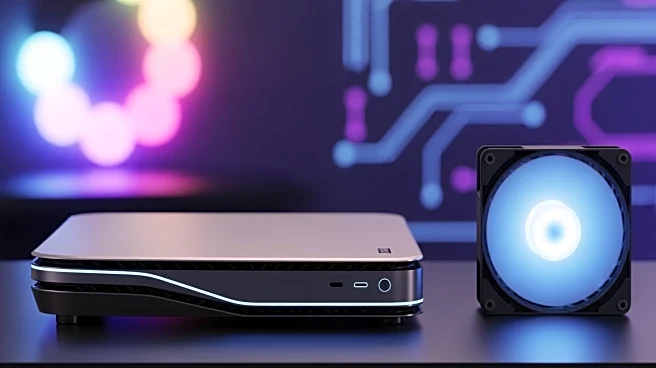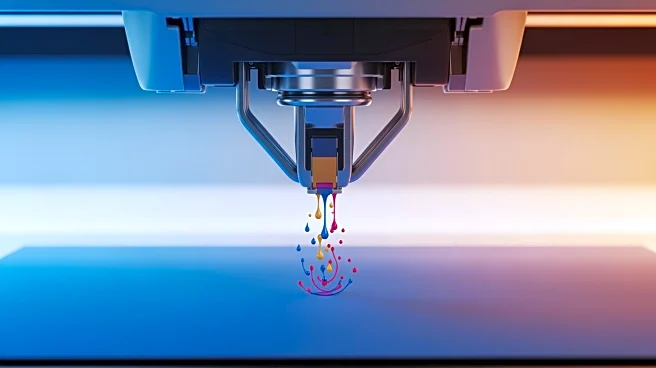What's Happening?
Valve has unveiled its new Steam Machine, a console-like gaming PC designed to run games at 4K resolution with upscaling. This iteration follows the success of the Steam Deck and aims to overcome previous
compatibility issues with SteamOS. The Steam Machine is equipped with an AMD RDNA 3 GPU and a Zen 4 CPU, offering performance comparable to mid-range graphics cards. Valve's Proton compatibility layer allows Windows games to run on Linux, broadening the device's game library. The machine's compact design and customizable features are intended to appeal to console gamers.
Why It's Important?
The introduction of the Steam Machine marks Valve's renewed effort to capture the living room gaming market, traditionally dominated by consoles like Xbox and PlayStation. By leveraging SteamOS and Proton, Valve aims to provide a seamless gaming experience with a vast library of games. This move could shift consumer preferences towards PC gaming, especially among those who value high-resolution graphics and customization. The Steam Machine's success could influence the future of gaming hardware, encouraging other companies to explore similar hybrid devices.
What's Next?
Valve has yet to announce the pricing for the Steam Machine, which will be crucial in determining its competitiveness against other gaming PCs and consoles. The company plans to implement a verification program similar to the Steam Deck Verified initiative, ensuring game compatibility. As developers optimize games for the Steam Machine, its appeal may grow among gamers seeking a plug-and-play experience. Valve's strategy will likely focus on balancing performance with affordability to attract a wide audience.











